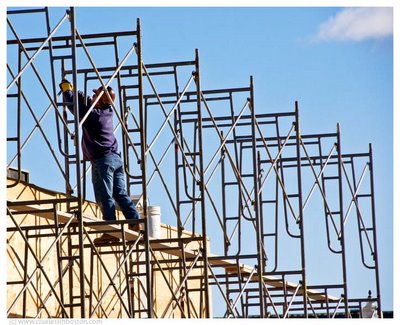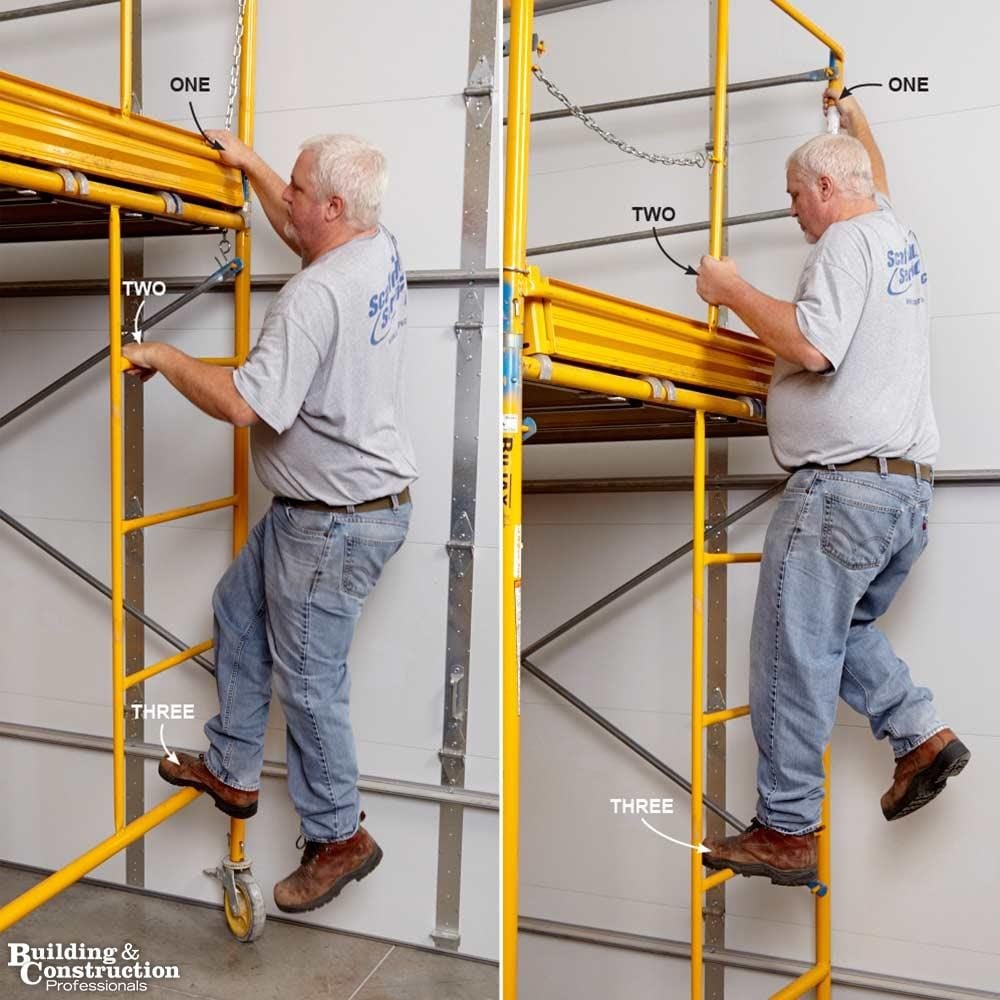Residential Scaffolding Solutions for Safe and Efficient Home Improvements
Residential Scaffolding Solutions for Safe and Efficient Home Improvements
Blog Article
Discovering the Various Types of Scaffolding Utilized in Building Jobs
The building sector depends greatly on different kinds of scaffolding to meet details project requirements, each offering distinct benefits and applications. Typical structure scaffolding supplies a sturdy foundation for basic tasks, while put on hold scaffolding is necessary for work on high-rise frameworks.

Conventional Framework Scaffolding
Conventional framework scaffolding is among one of the most commonly used techniques in the building and construction sector because of its toughness and adaptability. This system contains horizontal and upright structures that are set up to produce a steady system for products and employees. The primary components include vertical blog posts, horizontal ledgers, and angled dental braces, which together provide a strong framework that can support significant lots.
One of the crucial advantages of typical framework scaffolding is its flexibility to different construction tasks, ranging from household buildings to huge commercial frameworks. The modular layout permits very easy assembly and disassembly, making it effective for both long-lasting and temporary tasks. Additionally, the system can be personalized in height and size, fitting various building styles and website conditions.
Security is critical in scaffolding applications, and typical frame systems are furnished with guardrails and toe boards to stop falls and make sure employee protection. Routine examinations and adherence to safety policies are important in maintaining the honesty of the scaffold (Scaffolding). In general, standard frame scaffolding stays a basic selection in the construction sector, offering a trustworthy platform for labor and improving general job efficiency

Suspended Scaffolding
Put on hold scaffolding provides a special remedy for building and construction jobs that need access to elevated surface areas, specifically in circumstances where traditional structure scaffolding may be impractical. This sort of scaffolding is typically suspended from the roofing system or upper levels of a structure, using a system of pulleys, systems, and ropes to develop a functioning space that can be changed to various elevations.
Among the main benefits of suspended scaffolding is its versatility. It can be conveniently repositioned or lowered to fit adjustments in building requirements, making it excellent for tasks such as home window installment, frontage work, and maintenance on high-rise buildings. Furthermore, the very little footprint of suspended scaffolding enables far better usage of ground space in urban settings, where space is often limited.
Safety is an important consideration in the usage of put on hold scaffolding. In general, put on hold scaffolding offers a effective and effective remedy for accessing hard-to-reach locations in numerous building and construction scenarios, improving both efficiency and security on website.
System Scaffolding
System scaffolding, frequently considered a modern service in the scaffolding industry, consists of pre-engineered elements that can be rapidly assembled and adapted for numerous building and construction tasks. Scaffolding. This kind of scaffolding is identified by its modular style, which enables for convenience and performance on task sites, accommodating various elevations and structural demands
Generally made from high-strength steel or aluminum, system scaffolding uses enhanced sturdiness and stability. The elements include vertical posts, horizontal journals, and diagonal braces, which interconnect safely, making sure a durable structure. The design often includes standard installations, simplifying assembly and disassembly procedures, consequently reducing labor time and prices.

Rolling Scaffolding
Moving scaffolding is a functional choice to traditional set scaffolding, designed for movement and ease of use on construction sites. This type of scaffolding includes a platform sustained by structures with wheels, enabling workers to easily relocate it as needed. The movement attribute dramatically improves efficiency, as it decreases downtime related to dismantling and setting up dealt with scaffolding.
Generally created from lightweight materials such as light weight aluminum or steel, rolling scaffolding uses a durable yet mobile remedy for projects needing regular repositioning - Scaffolding. It is especially helpful in tasks such as paint, drywall setup, and electrical job, where accessibility to various heights and areas is required
Security is critical in rolling scaffolding design, with attributes such as Get the facts securing wheels to avoid unexpected motion when in use, and guardrails to protect employees from falls. Furthermore, numerous versions are flexible in height, fitting numerous task requirements.
Cantilever Scaffolding

The layout of cantilever scaffolding commonly entails making use of arms or braces secured to a building or structure, allowing the system to extend outside safely. Safety and security is extremely important; hence, these scaffolds must be crafted to hold up against environmental problems and different tons. Regular evaluation and upkeep are important to guarantee structural stability and employee safety.
Cantilever scaffolding is favored for its versatility and efficient usage of area, making it a prominent selection in urban atmospheres where space constraints prevail. It facilitates less complicated access to high altitudes, eventually adding to the total effectiveness of construction jobs. As with all scaffolding kinds, appropriate training and adherence to safety standards are essential for workers utilizing cantilever scaffolding.
Final Thought
Traditional framework scaffolding provides stability, while suspended scaffolding offers convenience for elevated jobs. Web Site System scaffolding helps with quick assembly, and rolling scaffolding boosts mobility for varying job settings.
Standard frame scaffolding supplies a tough foundation for general jobs, while suspended scaffolding is necessary for job on skyscraper structures.Rolling scaffolding is a flexible option to traditional fixed scaffolding, made for wheelchair and convenience of usage on construction websites. As with all scaffolding kinds, appropriate training and adherence to security criteria are vital for employees using cantilever scaffolding.
Typical frame scaffolding provides security, while suspended scaffolding supplies flexibility for raised jobs. System scaffolding assists in fast assembly, and rolling scaffolding improves flexibility for varying job environments.
Report this page